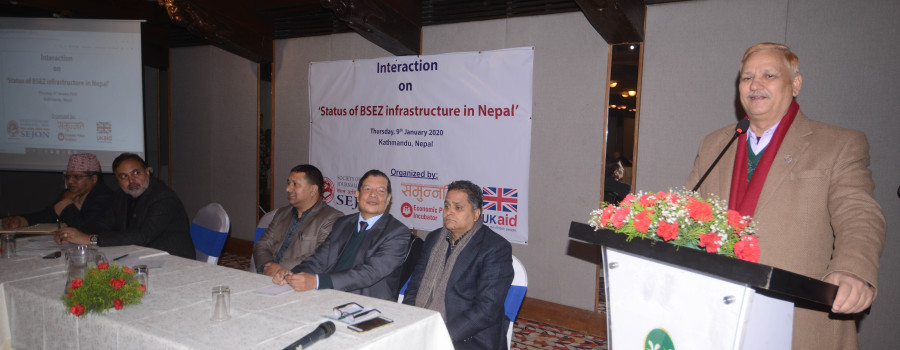Money
Six years on, Nepal’s first economic zone struggles to find investors
This fiscal year, the government has allocated Rs820 million budget for the economic zone in Bhairahawa but not a single rupee has been spent.
Krishana Prasain
The government constructed Nepal’s first special economic zone in Bhairahawa to attract significant investment and to generate economic impact beyond their confines but six years after it was built, its performance remains below expectations.
But the government is still moving ahead with their plan to create more special economic zones in Jumla, Panchkhal, Gorkha, Dhangadhi and Biratnagar. It also comes at a time when the special economic zone in Simara is having a hard time finding tenants.
The special zone was inaugurated in November 2014 and since then, only three factories have set up shop. Meanwhile, 13 factories have expressed their interest in investing in the special economic zone. Among them, five of them have already announced their decision to withdraw their investment.
“There are many problems that need to be sorted out. We plan to form a committee to look at the problem on why the special economic zones are failing to attract investors,” said Industry Minister Lekhraj Bhatta, addressing an interaction organised by the Society of Economic Journalists of Nepal here on Thursday. “All the recommendation of the committee's report will be implemented.”
Economist Shankar Sharma urged the government to introduce special economic zone regulations within six months although the special economic zone Act has been enacted.
According to Sharma, 22 plots at Bhairahawa economic zone is vacant and the infrastructure built six months ago is getting dilapidated. “Problems like road, sewage, electricity and other basic infrastructure persists.”
The government had allocated a huge chunk of the budget for the special economic zone in the past five years, but little has been spent.
This fiscal year, the government has allocated Rs820 million budget for the economic zone in Bhairahawa but not a single rupee has been spent.
Last fiscal year, the government had allocated Rs1.38 billion budget for the special economic zone but only Rs720 million was spent.
Traders and economists have raised concerns over the delay in implementation of a one-window system to facilitate investors. “We are ready to amend the policy to facilitate investors,” said Bhatta.
Similarly, the industry housed by the special economic zone has been asking the government to reduce the existing provision of exporting 60 percent of production. Earlier, it was 75 percent.
Similarly, they have asked the government to reduce the rental fee.
An official from the Panchakanya Industry inside the economic zone said that there were facing electricity problems despite being inside the industrial area. “We have been using a generator to operate the factory,” he said.
Dinesh Bhattarai, secretary at the Ministry of Industry, Commerce and Supplies, said the lack of coordination among government bodies has created hurdles for the development of the special economic zones.
The special zone was developed to increase export to minimise the trade deficit but so far, the zone remains an isolated area, he said.
Moti Lal Dugar, State Minister for Ministry of Industry, Commerce and Supplies, said a special committee will be formed to fast track the process for the operation and development of the special economic zones. “We will coordinate with related ministries for this,” he said.
He added that the government plans to construct special economic zones in all seven provinces.




 9.12°C Kathmandu
9.12°C Kathmandu














